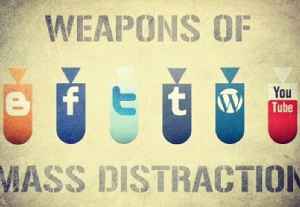As finals week is quickly approaching one word many college students use to describe this hellish week is, well, stressful. In today’s society when we hear the word stress we think of it as a bad thing and want to be “stress free.” Understandably so as nobody wants to feel the weight of the world on their shoulders.
In life I feel like everything we look at has literally to sides to it or another way to approach the situation at hand. In this instance, I believe that stress isn’t as bad as people put it out there to be. In health I used to hear the notion ” there is such thing as bad and good stress.” Not until now did I understand what that meant.
While doing my research I came across the wise words and advice of doctor Richard Shelton (vice chair for research in the Department of Psychiatry at the University of Alabama Birmingham) who stated, “after all, the body’s fight-or-flight response is meant to be protective, not harmful. It’s only when stress becomes chronic, or when we feel we’re no longer in control of a situation, that it negatively affects our health and wellbeing.”
Dr.Shelton also verbalized that the stimulation of low-level stressors brings about the production of neurotrophin (brain chemicals) that makes the connection between the brain and the neurons even stronger. In a way this is said to boost brainpower. Shelton also suggests that this boost in brain power can lead to improved memory.
According to researchers, “stress encourages stem cells in the brain to turn into new nerve cells that boost mental agility.” A study conducted on rats brought researchers to interesting results. A group of rats were tested and put into stressful events that would raise blood pressure. This made the stem cells in their brain develop into new nerve cells. These new nerve cells developed weeks later and significantly improved their mental performance. In the study it was said that improvement in mental performance was only noticeable two weeks after instead of an instant improvement. The reasoning behind this was that the new cells needed time to become mature. So the acute stress you experience may not give any results until weeks later.
Now although we are not rats we are very similar (therefore scientist often use them for studies.) Analyzing this study though I feel as though they should’ve had human subjects to make this study a bit more reliable. The ideal scientific experiment design would be male and females around the same age and health standings. Once we can get our subjects we would then have them take a test , that measures mental performance. Then, for a month they will be put in the same stressful environment for a month. Through out this experiment one would have to be diligent to get rid of extra variables. We would also have to ensure that the levels of stress were acute because then we would run into the issue of ethics of whether or not someone should be expose to high levels of stress. In the end, after the month of stress is complete the people will take another test of the same caliber of the first one and to see if their scores improved or no.
Associate professor of integrative biology at University of California, Berkeley says, “Some amounts of stress are good to push you just to the level of optimal alertness, behavioral and cognitive performance.”
In the end, like many other things I think it is safe to say that stress is okay to a certain extent. Like anything in life we must use and take things in moderation, and to me, stress is no exception. In the peer comments I am curious to see how you guys perceive stress and if it helps or hurts you. Many college students live by the saying , “I work better under stress.” Is that you?
http://www.dailymail.co.uk/health/article-2310343/Being-stressed-CAN-good–boosts-memory.html
http://abcnews.go.com/Health/Wellness/weird-ways-stress-good/story?id=25085508
http://stanfordmedicine.org/communitynews/2012fall/stress.html




















